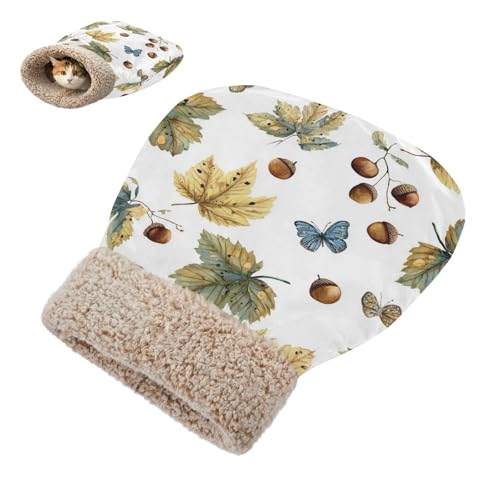Nuts are not an essential part of your dog’s diet. They can get all the nutrients available in nuts from other sources. But if you love nuts, you may feel like sharing them with your little furry friend. But can dogs eat hazelnuts?
Description of Hazelnuts
Hazelnuts are the edible nuts of the hazel tree. They are also known as cobnuts or filberts, depending on the species. The kernel of the hazelnut is rich in oil and has a strong flavor.
Hazelnuts are native to Europe, Asia, and North America. The most common variety is the Turkish hazelnut, which is grown extensively in Turkey, Italy, Spain, and Greece. Other varieties include the American hazelnut, which is found in the eastern United States, and the Chinese hazelnut, which is grown in China and Korea.
The nuts are harvested from September to November. They are then dried and stored until they are ready to be used.
These nuts are used in a variety of recipes, including cookies, cakes, pies, and candies. They can also be crushed and used as a topping for ice cream or other desserts.
Hazelnuts are a good source of vitamins and minerals, including vitamin E, magnesium, and potassium. They are also high in fiber and protein.
Can Dogs Eat Hazelnuts?
Yes, dogs can eat hazelnuts in moderation. As with any food, it is important to introduce hazelnuts slowly into your dog’s diet. Start with a small amount, and watch for any signs of digestive upset. If your dog does not have any adverse reaction, you can increase the amount gradually.
Hazelnuts are a choking hazard for dogs, so be sure to supervise your pet while they are eating them. You should also avoid giving your dog nuts that have been covered in chocolate or other sweets.
In general, nuts are not a necessary part of your dog’s diet. However, they can be an occasional treat.
Benefits of Hazelnuts For Dogs
Hazelnuts are a good source of vitamins and minerals, including vitamin E, magnesium, and potassium. They are also high in fiber and protein. These nutrients can help to support your dog’s overall health.
Vitamin E is a nutrient that is important for many different functions in the body. It is a potent antioxidant, meaning it helps to protect cells from damage. It is also necessary for proper immune function and blood clotting.
Magnesium is involved in over 300 biochemical reactions in the body, including those that help to regulate muscle and nerve function, blood sugar levels, and blood pressure. Potassium is also involved in many important bodily functions, such as regulating heart rate and blood pressure, as well as keeping muscles and nerves functioning properly.
There are many reasons why fiber is important for dogs. First, fiber helps keep dogs’ digestive systems functioning properly. Without adequate fiber in their diets, dogs can become constipated or even experience diarrhea.
Fiber also helps keep dogs feeling full, which can be helpful for those trying to maintain a healthy weight. Additionally, fiber helps promote healthy gut bacteria growth, which is important for overall health.

Finally, some studies have shown that fiber may help reduce the risk of certain diseases, such as cancer. Therefore, it is clear that fiber is an essential part of a healthy diet for dogs.
The high-fat content in hazelnuts can help to keep your dog’s coat healthy and shiny. The fats can also help to promote a healthy appetite.
Hazelnuts provide a lot of antioxidants, which help protect your dog’s cells from damage and keep their immune system strong.
Hazelnuts can be a healthy treat for your dog. Just be sure to give them in moderation and always supervise your pet while they are eating. If your dog does not have any adverse reaction, you can increase the amount gradually.
Risks Of Feeding Hazelnuts to Dogs
Although hazelnuts are generally safe for dogs to eat, there are a few potential risks to be aware of.
The first is the risk of choking. Hazelnuts are small and round, which makes them a choking hazard for dogs. Be sure to supervise your pet while they are eating them. You should also avoid giving your dog nuts that have been covered in chocolate or other sweets.
Another risk to be aware of is the possibility of an allergic reaction. Although rare, some dogs may be allergic to hazelnuts. If you notice any signs of an allergic reaction, such as itching, swelling, or difficulty breathing, stop feeding your dog hazelnuts and contact your veterinarian immediately.
Hazelnuts also contain a compound called juglone. This compound can be toxic to dogs in large amounts. Symptoms of juglone toxicity include vomiting, diarrhea, lethargy, and seizures. If you think your dog has ingested too many hazelnuts, contact your veterinarian immediately.
Alternatives To Hazelnuts For Dogs
There are many different types of nuts that you can feed your dog as an alternative to hazelnuts. Some good options include almonds, peanuts, and cashews.
Just like with hazelnuts, you should always give nuts to your dog in controlled amounts. Too many nuts can lead to weight gain and other health problems. You should also avoid giving your dog nuts that are covered in chocolate or other sweets.

If you think your dog may be allergic to hazelnuts, there are many other types of foods that you can feed them. Some good options include chicken, beef, or fish. You can also try feeding your dog hypoallergenic food.
If you are looking for a treat that is high in fiber, you can try giving your dog some cooked sweet potato or pumpkin. Both of these vegetables are high in fiber and other nutrients that are beneficial for dogs.
Finally, if you are concerned about the juglone compound in hazelnuts, there are many other types of nuts that do not contain this compound. Some good options include pecans, macadamia nuts, and Brazil nuts.
Our Final Thoughts
In conclusion, hazelnuts can be an occasional treat for dogs when given in moderation. They are a good source of vitamins, minerals, and antioxidants, which can help to support your dog’s overall health. However, there are some risks associated with feeding hazelnuts to dogs, so it is important to always supervise your pet while they are eating them. If you have any concerns, consult with your veterinarian before giving your dog hazelnuts.











![PetDroid Interactive Dog Toys Dog Ball, [Newly Upgraded] Durable Motion](https://m.media-amazon.com/images/I/41P-nlk1L0L._SL500_.jpg)



